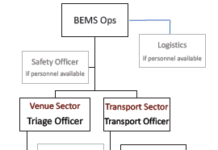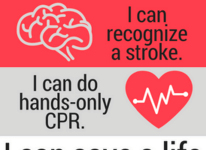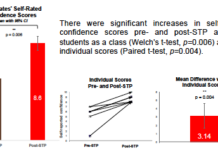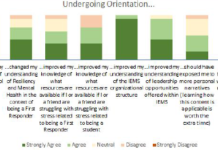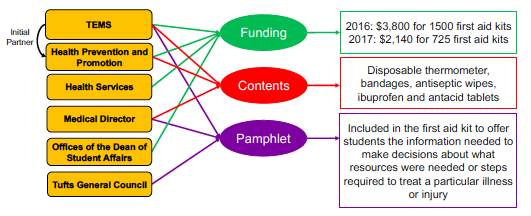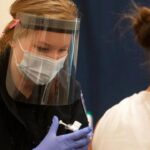Optimizing Collegiate EMS Resources During Major Events
Brown EMS (BEMS) provides primary medical coverage at Spring Weekend (SWE), an annual outdoor concert drawing 6,000 attendees per day. By increasing its resources to include ground details and an additional ALS ambulance, BEMS aims to increase venue capacity, optimize response, and limit mutual-aid requirements.
Cardiac Health and Stroke Awareness Month (CHASAM)
Massachusetts Institute of Technology (MIT) EMS designed a non-certification learning opportunity for students who have not previously sought out CPR training. MIT EMS’s creation of an annual Cardiac Health and Stroke Awareness Month (CHASAM), piloted in 2016 and repeated in 2017, substantially increased the number of trained bystanders from a diverse selection of residential communities.
Feasibility of Asynchronous Learning in Collegiate EMS
Brown University EMS implemented a novel BLS Supervisor Training Program. Using asynchronous learning, Brown sought to optimize training time by promoting self-learning off-shift and outside of traditional didactic models using small-group, problem-based learning and online modules.
Piloting an Online New Member Orientation Program
Illini EMS created and implemented an online Orientation course for new members. Using a combination of original and adapted videos followed by a quiz, this self-paced program teaches and assesses the basics of topics including bleeding control, organizational structure, team dynamics, and First Responder mental health in under an hour.
Upstream of EMS Overutilization
Tufts Emergency Medical Services—alongside Tufts Health Promotion and Prevention—funded, created, and distributed first aid kits and informational content to all first-year students.
Marketing Your EMS Experience
Collegiate EMS providers should leverage their experience in EMS to demonstrate their qualifications for employment or graduate education.
Dr. Michael Guttenberg – in Memoriam
Dr. Michael Guttenberg – an EMS physician, 9/11 responder, and dedicated advocate of collegiate EMS – passed away on October 17, 2017.
Tackling Barriers to Seeking Emergency Care
To encourage care-seeking behavior, collegiate EMS leaders spearheaded the development and implementation of a medical amnesty policy.
You Can Learn a Lot from a Pair of Sneakers
To be treated like professionals, collegiate EMS providers need to display professionalism in their attitude and appearance.
Drug-Facilitated Sexual Assault
Clinical review of drug-facilitated sexual assault in the college environment, health effects of drugs and alcohol in facilitating sexual violence, and proper response and treatment guidelines for collegiate first responders.

